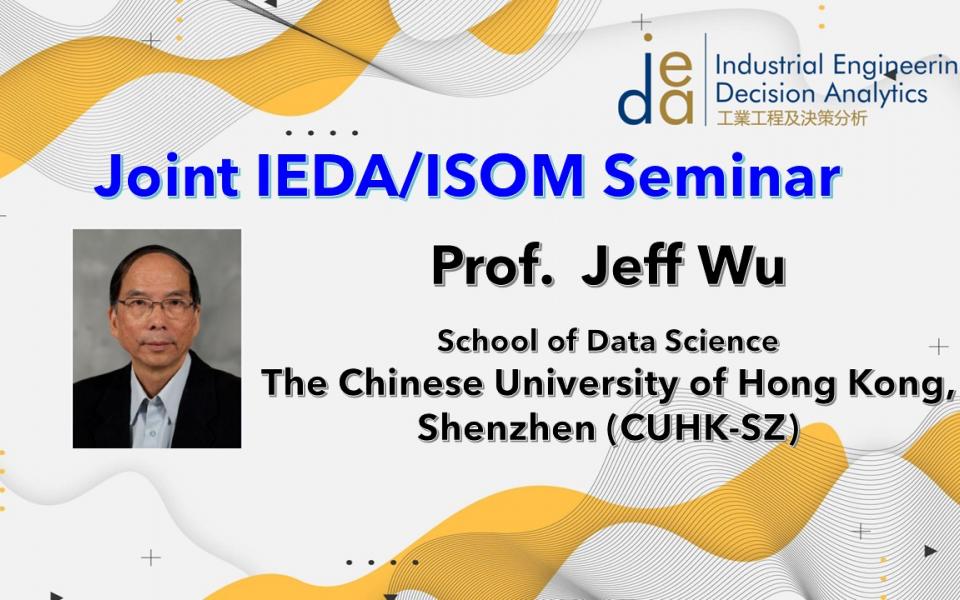Department of Industrial & Decision Analytics [Joint IEDA/ISOM seminar] - From real world problems to esoteric research: examples and personal experience
Supporting the below United Nations Sustainable Development Goals:支持以下聯合國可持續發展目標:支持以下联合国可持续发展目标:
Young (and some not-so-young) researchers often wonder how to extract good research ideas and develop useful methodologies from solving real world problems. The path is rarely straightforward and its success depends on the circumstances, tenacity and luck. I will use three examples to illustrate how I trod the path. The first involved an attempt to find optimal growth conditions for nano structures. It led to the development of a new method “sequential minimum energy design (smed)”, which exploits an analogy to potential energy of charged particles. After a few years of frustrated efforts and relentless pursuit, we realized that smed is more suitable for generating samples adaptively to mimic an arbitrary distribution rather than for optimization. The main objective of the second example was to build an efficient statistical emulator based on finite element simulation results with two mesh densities in cast foundry operations. It eventually led to the development of a class of nonstationary Gaussian process models that can be used to connect simulation data of different precisions and speeds. The third example is about a novel use of Treed Gaussian Process to model and classify a jet-swirl dichotomy observed in a jet ignition experiment that exhibits a dichotomous behavior. In each example, the developed methodology has broader applications beyond the original problem. I will explain the thought process in each example. Finally, I will share some secrets about a “path to innovation”.
C. F. Jeff Wu is a X. Q. Deng Presidential Chair in the School of Data Science, CUHK (Shenzhen). His research covers statistical theory, methodology and applications. He is a Member of the National Academy of Engineering (2004), and Academician of Academia Sinica (2000). A Fellow of ASQ, IMS, INFORMS, and ASA. He received the COPSS Presidents’ Award (1987), COPSS Fisher Lecture Award (2011), Deming Lecture (2012), Shewhart Medal (2008), Class of 1934 Distinguished Professor Award at Georgia Institute of Technology in 2020. He was the 1998 Mahalanobis Memorial Lecturer at the Indian Statistical Institutes, received the inaugural Akaike Memorial Lecture Award in 2016, the 2017 Box Medal from ENBIS, and an honorary doctor degree at the University of Waterloo.
He has published more than 190 research articles. He has supervised 52 Ph.D.'s, out of which more than half are teaching in major research departments worldwide. Among them, there are 26 Fellows of ASA, IMS, ASQ, IAQ, INFORMS and IIE, four are editors of major statistics journals, and one is a Fellow of Royal Society of Canada. He co-authors with Mike Hamada the book "Experiments: Planning, Analysis, and Optimization" (Wiley, 3rd ed. 2021). He coined the term “data science” in 1985 (during a lecture at Chinese Academy of Sciences, Beijing).
